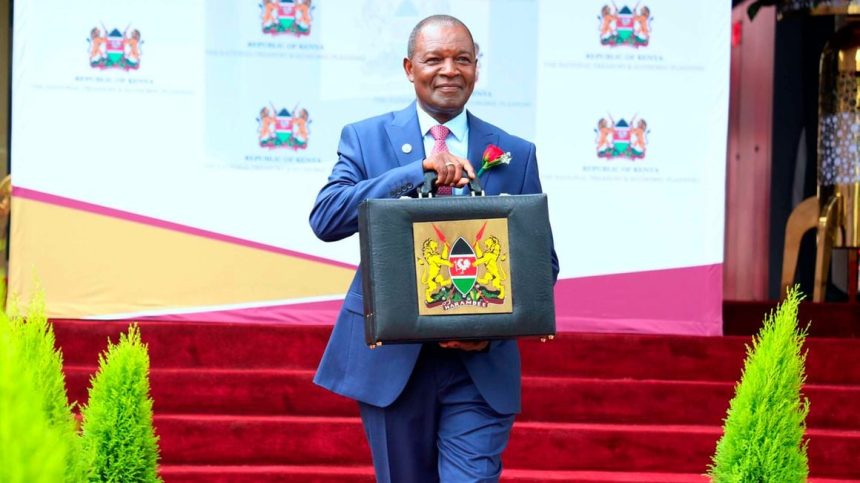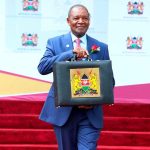The government of President William Ruto has budgeted Sh7 trillion to pay debt in its first term in office from the financial year starting July 1, highlighting the debt burden inherited from previous administrations.
Revised estimates on spending on public debt from the Treasury puts cumulative debt payment costs at Sh7.071 trillion from the 2023/24 fiscal year to 2026/27, revealing the impact of a weighty debt load.
Spending on interest payments has been tabulated at Sh3.42 trillion while redemptions, which will be likely refinanced — paid down using new debt — are estimated at Sh3.65 trillion in the four-year fiscal cycle.
Changes effected in the second supplementary budget have lifted the cumulative debt service costs, including the fiscal year on June 30 by a sizable Sh131.09 billion reflecting the impact of increased interest payments on external debt and redemptions over the medium term.
Total debt service costs are expected to rise to a record Sh1.802 trillion in the fiscal year to June 2024 from Sh1.385 trillion at present, mirroring the impact of the redemption of a Sh279.7 billion ($2 billion) debut Eurobond, which matures on June 24, 2024.

The debt service costs will, however, begin to slide thereafter to Sh1.669 trillion in the 2024/25 fiscal year and to Sh1.748 trillion in the financial year to June 2026.
Debt service costs, meanwhile, add up to Sh1.768 trillion in the 2026/27 financial year with interest expenses at Sh891.8 billion and Sh876.5 billion in redemptions.
The bulk of debt service costs cover repayments to borrowings undertaken to cover huge infrastructure undertakings by the previous administration, including the Mombasa-Nairobi standard gauge railway project, which had outstanding arrears of Sh223.8 billion ($1.6 billion) as of June 30, 2022.
The payments also cover the redemption of Sh125.9 billion ($900 million) Eurobond maturing on June 22, 2027. Additional debt service costs are due to persistent deficits in subsequent budgets, which have required financing beyond domestic revenue mobilisation.
The upcoming interest payments are expected to pack pressure on revenues, swallowing up a significant portion of government revenues.
In contrast, the heavy redemptions would require the government to borrow more to offset the arrears through refinancing.
The Treasury is, for instance, expected to issue a new Eurobond to refinance the June 2024 maturity with the exchequer having already kicked off the process to settle the maturity.
“In preparation for the redemption of this maturing bond, the National Treasury…issued an expression of interest to bring on board a lead manager to advise the government on liability management options towards the resolution of the Eurobond 2024,” Treasury Cabinet Secretary Njuguna Ndung’u said last week.
Besides borrowing to refinance, the Kenya Kwanza administration is expected to seek financing to plug new deficits in subsequent budgets beginning with Sh718 billion in the new fiscal year.
The switch to relying more on domestic funding in the fiscal cycle is however set to test the growth of private sector credit with the government set to compete with businesses and households for credit from banks.
Net domestic borrowing has, for instance, been projected at Sh586.5 billion in the 2023/24 financial year with net foreign financing at Sh131.5 billion, representing an 18:82 mix from an improved mix of 48:52 in the year to the end of June 2023.
Despite the growing debt service costs and prevalent fiscal deficits, the government has assured its ability to meet all arising maturities and interest payments even as it initiates a fiscal consolidation policy anchored primarily on growing tax revenues through the expansion of the tax base.
“Although the debt burden has risen, Kenya has not accumulated debt service arrears and the government is committed to honor all public debt obligations as they fall due. Over the medium term, the revenue-driven fiscal consolidation policy stance is expected to improve the country’s debt sustainability ratios and debt carrying capacity,” CS Njuguna Ndungu added.



